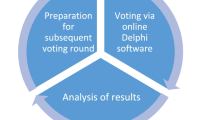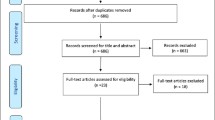Abstract
Background
The concept of frailty has been suggested to comprise physical, mental, and social phenotypes. However, there is no general consensus about the appropriate components for assessing frailty.
Objectives
The purpose of this study was to reach consensus on components of frailty assessment using the Delphi process.
Methods
To achieve consensus on the definition of frailty, a modified Delphi method was used. Geriatric and gerontologic experts were selected from various fields. The detailed components of frailty were composed of data from the Korean Frailty and Aging Cohort Study. Establishing consensus and collecting opinions from experts were conducted using a modified Delphi method.
Results
Overall, nine domains with 14 components of frailty assessment were accepted. There was consensus on the necessity of a broad phenotype including physical, mental, and social frailty.
Conclusions
Consensus on the components of a frailty assessment in a clinical setting is achieved through the Delphi process to establish a new tool of frailty assessment.
Similar content being viewed by others
References
Morley JE, Vellas B, van Kan GA et al. Frailty consensus: a call to action. J Am Med Dir Assoc. 2013;14(6):392–397.
Abellan van Kan G, Rolland Y, Bergman H et al. The I.A.N.A Task Force on frailty assessment of older people in clinical practice. J Nutr Health Aging. 2008;12(1):29–37.
Dent E, Lien C, Lim WS et al. The Asia-Pacific Clinical Practice Guidelines for the Management of Frailty. J Am Med Dir Assoc. 2017;18(7):564–575.
Kim KJ, Shin J, Choi J, Won CW. Discrepancies in the Prevalence of Known Frailty Scales: Korean Frailty and Aging Cohort Study. Ann geriatr med res. 2018;22:137–144.
Gobbens RJ, Luijkx KG, Wijnen Sponselee MT, Schols JM. Towards an integral conceptual model of frailty. J Nutr Health Aging. 2010;14(3):175–181.
Buta BJ, Walston JD, Godino JG et al. Frailty assessment instruments: Systematic characterization of the uses and contexts of highly-cited instruments. Ageing Res Rev. 2016;26:53–61.
Rodriguez Manas L, Féart C, Mann G et al. Searching for an Operational Definition of Frailty: A Delphi Method Based Consensus Statement: The Frailty Operative Definition-Consensus Conference Project. J Gerontol A Biol Sci Med Sci. 2013;68(1):62–67.
Clegg A, Young J, Iliffe S et al. Frailty in elderly people. Lancet. 2013;381(9868):752–762.
Won CW, Lee S, Kim J et al. Korean frailty and aging cohort study (KFACS): cohort profile. BMJ Open. 2020;10(4):e035573.
Linstone HA, Turoff M. The delphi method: Techniques and applications. Wesley Publishing Company, 2002.
Soong JT, Poots AJ, Bell D. Finding consensus on frailty assessment in acute care through Delphi method. BMJ Open. 2016;6(10):e012904.
Nair R, Aggarwal R, Khanna D. Methods of formal consensus in classification/diagnostic criteria and guideline development. Semin Arthritis Rheum. 2011;41(2):95–105.
Goodman CM. The Delphi technique: a critique. J Adv Nurs. 1987;12(6):729–734.
Fried LP, Tangen CM, Walston J et al. Frailty in older adults: evidence for a phenotype. J Gerontol A Biol Sci Med Sci. 2001;56(3):M146–156.
Huisingh Scheetz M, Wroblewski K, Kocherginsky M et al. The Relationship Between Physical Activity and Frailty Among U.S. Older Adults Based on Hourly Accelerometry Data. J Gerontol A Biol Sci Med Sci. 2018;73(5):622–629.
Higueras Fresnillo S, Cabanas Sanchez V, Lopez Garcia E et al. Physical Activity and Association Between Frailty and All-Cause and Cardiovascular Mortality in Older Adults: Population-Based Prospective Cohort Study. J Am Geriatr Soc. 2018;66(11):2097–2103.
Dodge BJ, Clark RE. Research on the Delphi Technique. Educational Technology. 1977;17:58–60.
Ravonne AG. The Delphi Technique in Educational Research. SAGE Open. 2014;4(2):1–8.
Acknowledgements
K.J.K., J.C. was responsible for this study’s design. J.C. supervised the study and was responsible for the drafting and revising of the manuscript. J.S., J.C. approved the final manuscript. The data was obtained by K.J.K., J.C, J.S., M.K., and JW. This research was supported by a grant of the Korea Health Technology R&D Project through the Korean Health Industry Development Institute (KHTDI), funded by the Ministry of Health and Welfare, Republic of Korea (grant number: HJ15C3153).
Author information
Authors and Affiliations
Corresponding author
Ethics declarations
Conflict of interest: All of the authors declare that there were no conflicts of interest.
Ethical standards: Ethics approval for this study was provided by the Institutional Review Board of the Clinical Research Ethics Committee of Kyung Hee University Medical Centre, Seoul, Korea (KMC IRB number: 2015-12-103).
Electronic Supplementary Material
Rights and permissions
About this article
Cite this article
Kim, K.J., Choi, J., Shin, J. et al. Consensus on Components of Frailty Using the Delphi Method: Korean Frailty and Aging Cohort Study. J Nutr Health Aging 25, 242–247 (2021). https://doi.org/10.1007/s12603-020-1523-0
Received:
Accepted:
Published:
Issue Date:
DOI: https://doi.org/10.1007/s12603-020-1523-0




